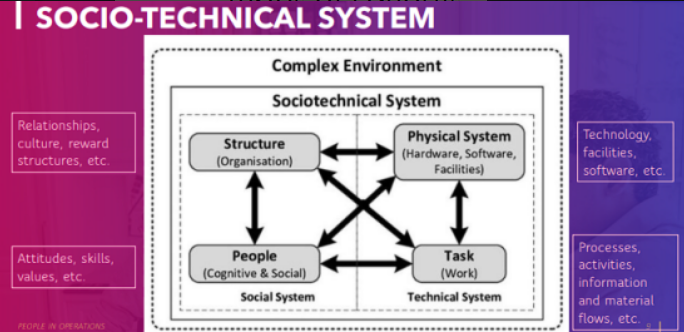Week 7: Understanding Socio-Technical Systems in Operations Management

Socio-Technical System Overview
Concept: A socio-technical system (STS) is an approach to complex organizational work design that recognizes the interaction between people and technology in workplaces. The term socio-technical denotes the interrelatedness of social and technical aspects of an organization.
Components of Socio-Technical Systems:
Structure (Organization): Refers to how the organization is arranged, including its hierarchical setup, workflow, and formal processes.
People (Cognitive & Social): Encompasses the workforce's attitudes, skills, and values, along with how they interact within the organization.
Task (Work): The actual work performed using the skills, knowledge, and tools provided by the organization.
Physical System (Hardware, Software, Facilities): All the technological and physical infrastructures used in the organization to support and fulfill tasks.
Complex Environment: STS operate within complex environments that continuously affect and are affected by these four components.
Key Insights:
Optimizing Operations: Leveraging the STS framework can help managers optimize operations by ensuring that technology implementations are compatible with the human elements of their organization.
Enhancing Collaboration: Encouraging synergy between the technical and social aspects of the workplace enhances collaboration and innovation.
Managing Change: Effective management of socio-technical systems is crucial for navigating organizational change, particularly in settings that are increasingly dependent on complex technologies.